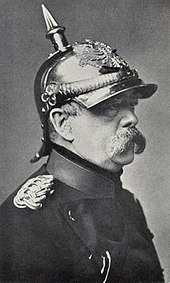This Thanksgiving is not one I could have ever anticipated. Back in March when my school went remote I was shocked when the head said we might be remote to the end of the school year. Now I wonder when the next day I teach all of my students in the classroom will come, if it ever will. Sometimes I think of the World War I trench soldiers who thought about the war just going on forever, an eternal hell.
This month has given hope and fear in equal measure. The election and news of successful vaccines has lifted my spirits, but inauguration isn't until January and the drugs have yet to be administered. In the meantime the infection rate has skyrocketed and the winter weather will only make things worse. Millions have decided to have a "normal" Thanksgiving in these circumstances that will probably kill more people than Sturgis did. Your move, Christmas.
In the past week things have been hitting closer to home. The households of friends have been hit by the disease, including in the house literally next door to mine. This feels like the proverbial darkest hour before the dawn. Well, at least I hope there's a dawn.
In the midst of this gloominess comes Thanksgiving, a time of reflection. As I take stock of things, I certainly have plenty to be thankful for. In this time of economic anxiety I still have my job, and my employer has to my estimation done a good job of keeping me safe even though I am going in to school. Because of quarantine I have been able to spend a lot more time with my wife and children, and I am glad for that. During normal work weeks my commute made it so I barely saw them, and that when I did I was either stressed trying to get to work or exhausted coming home from it. I know I am fortunate and am planning on making some donations to help people who have not been as lucky.
I am also feeling thankful on a slightly different level. This week I started reading Thoreau's Walden, a book I had been circling around for almost thirty years. I had heard such conflicting things about it, but in September we took a trip to Cape Cod and I picked up his travelogue of the area at a local bookstore. I found that I really liked his prose style, so often derided by others.
Some books that are assigned to high school students never should be, and Walden is obviously one of them. The issues it raises only become clear once one has gone far into adulthood. At a certain point, usually middle age, most people realize they are no longer becoming the person they will be, but have already become the person they will be for the rest of their lives. This reckoning can be a tough one, and one no teenager on earth can truly comprehend. (And that's to be expected! Let them have their days in the sun because the sun will soon be clouded.)
The question the book forces the reader to ask, again and again, is "What am I doing with my life?" The one true gift the horror of COVID and the boredom of quarantine has given me is the clear knowledge that I am not wasting it. My work as a teacher, especially under the demands of quarantine, is difficult and draining. But it is also meaningful. I know what I am doing makes a positive impact on my students, and the paper shufflers, bureaucrats and salesman that make double and triple my salary really can't say that. All the time with my family has brought home to me that I have made the right choices in my priorities.
When this all started I had a couple of days of deep reflection, wondering if my soul was prepared if my life were to be taken in the pandemic. I have so much more to live for, but if the universe doesn't have that in the cards for me I know I did a lot with the time I managed to eek out. For that, I am thankful.


